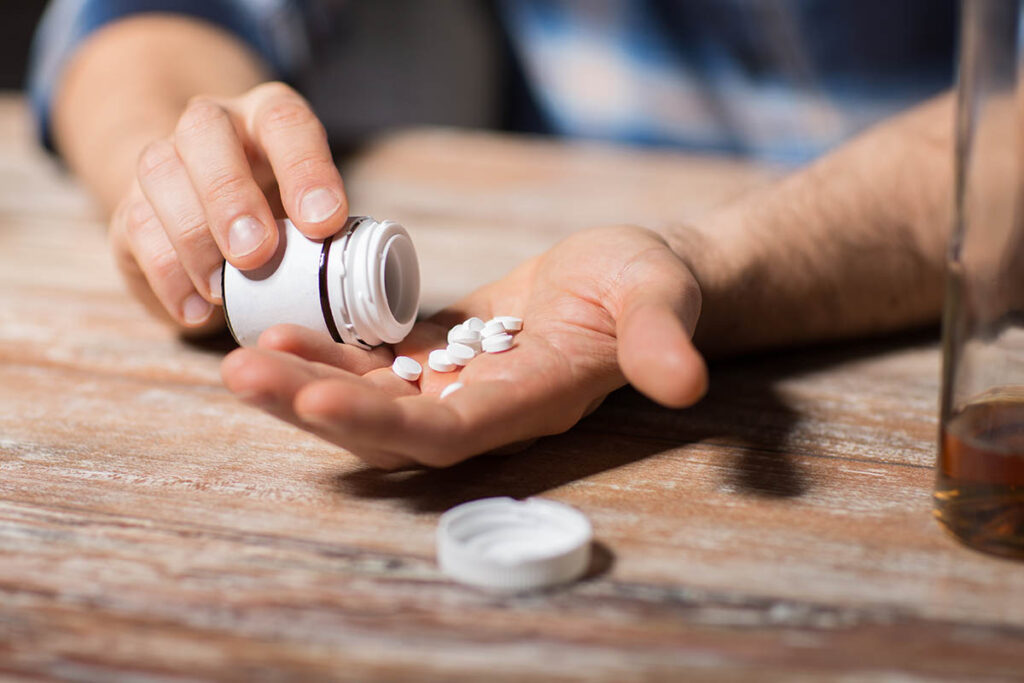Prescription drugs are one of the most notable medical advances of the past one hundred years. They provide enormous amounts of relief and symptom reduction for millions of people worldwide. However, many of them are also addictive. Prescription drug abuse has grown more and more common in recent decades, partly influenced by the overprescription and abuse of opioids.
The vast majority of people never intend to abuse drugs. They likely start out with a legal prescription. However, over time, the pull of the drug’s effect or the development of tolerance may cause them to use in higher doses or more often than they should. Staying watchful for signs of prescription drug abuse can ensure you or a loved one avoid the worst impacts of drug abuse and addiction. Reach out to Vertava Health at 844.470.0410 to learn about the signs of prescription drug abuse and what interventions are available.
Which Medications Have the Highest Risk of Prescription Drug Addiction?
Drug abuse occurs when someone uses a medication that does not strictly follow prescription instructions. Abusing a drug does not guarantee that someone will end up with an addiction. Yet once abuse begins, it is often a slippery slope to addiction. The body can develop a tolerance for the drug, leading people to use higher doses more frequently to produce the desired effect.
The medications that tend to have higher rates of prescription drug addiction are sedatives, opioids, and stimulants. Doctors prescribe sedatives for treating anxiety disorders and sleep problems, while opioids are a category of pain relievers. Lastly, stimulants are typically prescribed to manage conditions like narcolepsy and attention deficit hyperactivity disorder.
Common Signs of Prescription Drug Abuse
The signs of prescription drug abuse can vary by individual. Drug-seeking behavior is one of the most common signs of prescription drug abuse. People who stick to their prescription do not need to seek drugs beyond what they already have legal access to usually. Many of the other signs of prescription drug abuse are behavioral in nature. Drug cravings and addiction often alter a person’s demeanor and outlook on life in noticeable ways. Behavioral signs of prescription drug abuse include:
- Doctor shopping, which is when someone visits different doctors to get the same prescription from each to increase their supply
- Borrowing or stealing prescription medication from family or friends
- Hostility or irritability
- Experiencing withdrawal symptoms between prescription drug use
Physical and psychological signs of prescription drug abuse may also appear when someone starts abusing their medications. Sleep problems often stem from drug abuse. Mood swings are also common among people who abuse prescription drugs. The exact effect on their mood depends somewhat on the medication in question. Nonetheless, people who abuse drugs are often more volatile, easily annoyed, and irritable, especially in contrast to how they behaved prior to drug abuse.
Symptoms of Prescription Drug Addiction
Sedatives, opioids, and stimulants each have their own set of symptoms. Typical symptoms of prescription drug addiction for each category are described below.
Sedative Addiction Symptoms
Symptoms related to sedative addiction include drowsiness, confusion, memory problems, and involuntary tics.
Opioid Addiction Symptoms
Opioid addiction symptoms typically involve psychological and gastrointestinal problems. Constipation is a common symptom. People struggling with opioid addiction also experience depression, confusion, and impaired coordination.
Stimulant Addiction Symptoms
Stimulant abuse and addiction usually involve weight loss, agitation, restlessness, and heart palpitations.
Get Help for Prescription Drug Addiction at Vertava Health
Vertava Health is a trusted provider of prescription drug addiction treatment. If someone you love is displaying the signs of prescription drug abuse, it is time to connect them to treatment. Waiting will only allow addiction to take deeper root. Contact Vertava Health at 844.470.0410 to get help with prescription drug addiction today.


